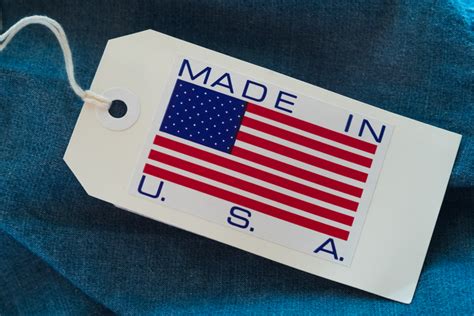In recent news, Williams-Sonoma, a renowned home goods retailer, has come under the regulatory spotlight, contesting a hefty $3.18 million penalty from the Federal Trade Commission (FTC) for inaccurate ‘Made in USA’ labels. This is not the first instance of such allegations against the company, drawing attention to a persistent issue in corporate America: the tempting but risky game of origin mislabeling. The consequences of such actions stretch beyond simple legal repercussions; they strike at the very core of consumer trust and corporate ethics.
The fine imposed on Williams-Sonoma is indicative of a broader enforcement trend, reflecting authorities’ growing intolerance for misleading marketing practices. This escalated response follows a previous settlement involving similar allegations in 2020, pointing toward a pattern of non-compliance that undermines regulatory frameworks and consumer confidence. Subsequently, the FTC’s resolute stance may steer other corporations toward more rigorous adherence to transparency principles, potentially leading the way to a more accountable business landscape.
From a consumer standpoint, the allure of ‘Made in USA’ tags extends far beyond simple patriotism. For many, such labels resonate with expectations of quality, ethical labor practices, and economic patriotism, which support domestic industries. When companies like Williams-Sonoma allegedly manipulate these labels, they not only mislead consumers but also unjustly position their products against genuinely domestic goods in the market, leveraging nationalism for competitive advantage without the substantiating credentials.
The discussion among the public and experts alike suggests a push towards more stringent regulatory measures and perhaps an overhaul of labeling practices. For instance, some propose a detailed ‘nutrition-style’ labeling system for product origin, which could enhance transparency but also poses significant challenges in a globalized supply chain context. Such solutions require careful consideration of feasibility and impact, particularly on how they might reshape consumer perceptions and industry standards on a larger scale.
Ultimately, this incident highlights the critical need for an ethical reassessment in how products are marketed and the values that companies stand for. As the market becomes ever more global, the truthfulness in advertising becomes not just a legal requirement but a cornerstone of consumer trust and brand integrity. Moving forward, it will be essential for businesses to align more closely with these values, ensuring that their practices do not diverge from the increasingly vigilant eyes of regulators and the public they serve.


Leave a Reply